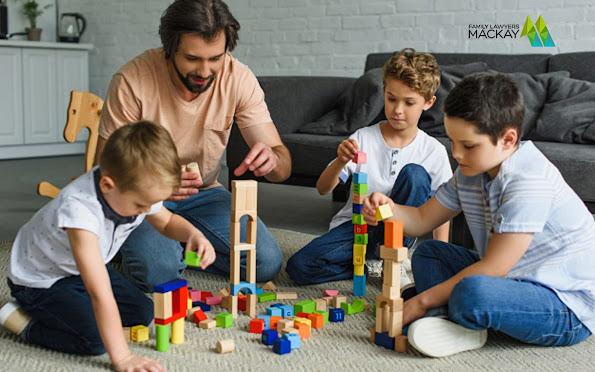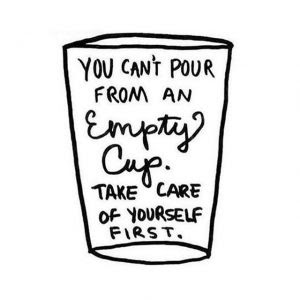
Reflection is essential in the case of a divorce situation. As you file for separation and divorce, a short statement is issued during the process to determine whether reflection has been considered by both parties or not. This again includes other things like what the result of this reflection is and other things. In each of the cases, there is not timing barricade, but the lookout point here is the area of reflections. As you are here with the questions, get through the different reflections that you will have to face and answer. The Judgment of the High Court in Stanford v Stanford saw a complete re-think of how to approach the division of assets after separation.
Common Reflections you have to Answer
While you fill up the divorce case and the suit is one, the judge of the court will be carrying on different processes, one o which is the reflection of the couples. Reflections are the things that the couples must consider in their life and about their life, while they are going for a separation. How their life would be and what are the basic reasons for their divorce and how they will manage their responsibilities after being separated, these are the few common areas that the court plans and thinks off, and that every part is called the reflection. Here are the common reflection areas that you will age to face at the court –
Why are you going for a Divorce?
The first and the foremost thing that you will have to reflect upon is the reason for your divorce. What are the problems you are facing from your spouse, whether that is psychological or is financial, and what you both have done to resolve the issue – these are the things that you will have to reflect on while answering the questions.
While trying to answer the conditions, you also need to refer someone at times. When that is a psychological issue, whether you have counselled with some of the psychologists or not, and when that is merely a financial issue, whether you have counseled with some of the lawyers – these few things are to be considered and declared while the divorce case is under process.
The court has to be satisfied with the effort that you both have made. If it is not the case, the court might initiate some process to solve the divorce case with mutual understanding, where a psychologist or a lawyer might be initiated to solve the problems. If those efforts are unable to resolve the case, then the reflection is over and you will be going ahead with the divorce.
How will be your Post-Divorce Life?
This is the area that typically includes the psychological aspects of the couple. The financials are also entertained, but they are segregated to some other aspect. Hence, while life after divorce is to be reflected, it is essentially pointed towards the mental state of the couples.
It has been found that most of the time the decision of separation by the couples are taken at the heat of the moment and while time goes after the divorce, they feel the need of the other person and unavailability of the same makes the situation gradually insane. In order to protect that, this reflection is stressed a lot by the court.
Here the court looks through the reports made by the psychologists, in order to find the mental state of the couples, while they made the decision to separate. The reflection of the couples, about their life after separation is also considered here. How much affection each of the partners is having for the other and whether they are willing to separate only because of their mental disturbance or that is a well sorted out issue is analyzed here.
If the court finds that the decision made is in the heat of the moment and each of the partners is well attached to each other and they are having the wish to remain together are to be adjusted here by the court. Hence, if you are serious about your divorce case, then reflect well on the matter.
What does Will Happen to your Kids after the Separation and Divorce?
This is another issue that is usually raised by the court. There are several things that are to be checked here –
The First of them is – with whom the kid will be there. Is he/she going to stay with the father or the mother? This is the thing that shows the intention among the parent, about the willingness to rake the responsibility of the kid.
The Second thing is that with whom the kid is attached. This is the thing that is going to state clearly with whom the kid must go.
The Third thing is – how much the kid is accepting the separation. Whether he/she is ready to stay with any one of the couples or he/she is /unwilling to lose anyone of his/her parent
The final aspect that is to be considered here is the financials regarding the kid’s future. How the expenses of the kid will be bored and by whom that is going to be bored are the things that are to be answered here. You also will never think to make the future of your kid get bogged down and the court being the jurisdiction of the country, will definitely think about the future of the kid.
What will be the Financial Conditions after the Divorce?
This is the final thing and the vastest of all the things which are considered in the reflection process for a divorce case. There are numbers of complications at this level and all of them are regarding the legal aspects, income, responsibilities, and property of each of the partners.
Here are some of the Conditions that are usually Considered and the Judge wants to see in the Reflections –
The financials of the husband and the wife and what exactly their income is – this is a declaration that is mandatory in the reflection.
From the second condition, come the aspects of financials, whether the income of the husband is enough to run the expenses of the wife or only the kids.
If the wife is an earning member, whether she is willing to bring up the kid and run all his/her expenses or she wishes her husband to take part in the expenses.
Whether the Husband wishes to Take part in the Expenses of the Kid or not
Is there any parental property of any of the couple? If it is there, whether the property is an asset that has to be liquidated later on, or that is it a liquid wealth like shares, cash, or some bank deposits? If that is the case, what must be the burden on the husband or the wife?
Read MORE – WHAT HAPPENS AFTER A DIVORCE CASE IS FILED?
Finally comes, the tenure of the financials – in most of the cases it is run till the period, while the partners go for a remarriage.
Conclusion
Thus are the differentials that you will face in the case of a divorce case as reflections. Court asks for those reflections at the time of suite. If you can produce those then the court will simply interrogate to know whether the reflections were made knowingly or unknowingly.
Once the court is satisfied with the reflections, it will proceed to the separation process. If that is not the case, then the court might keep the separation case pending too. So, it is better to go for counseling with the lawyer, as he/she will guide you in the entire process.
Article Source: assets after separation







